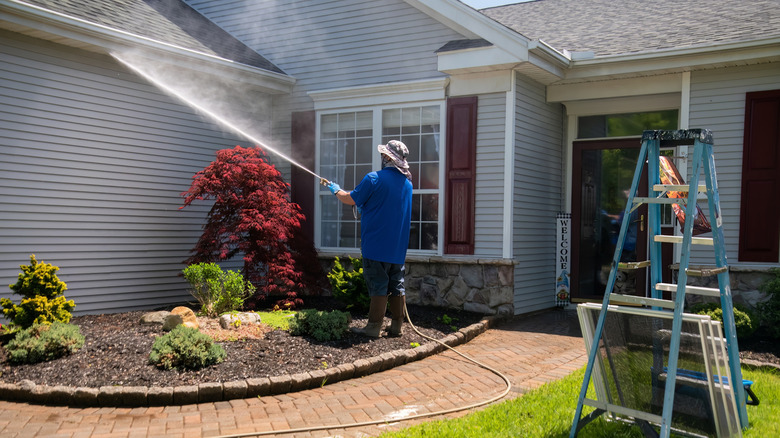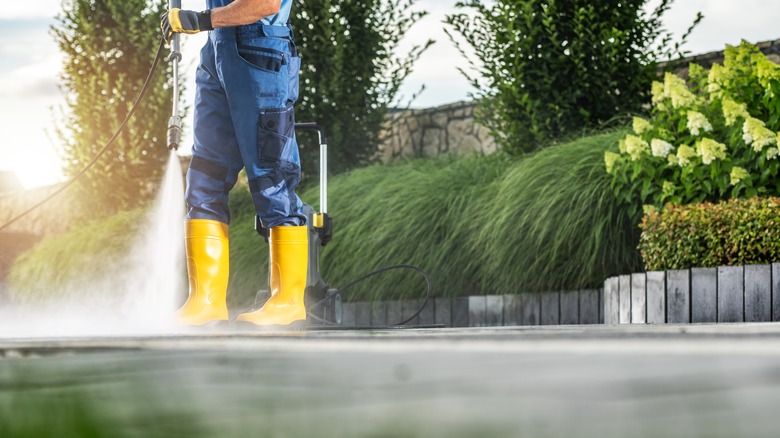The Little-Known Downsides To Electric Pressure Washers
We may receive a commission on purchases made from links.
Recent advancements in technology have revolutionized outdoor power tools, including leaf blowers and lawn mowers. You may have also considered an electric pressure washer, which doesn't use gasoline and is considered much more environmentally-friendly. Furthermore, electric pressure washers are not as loud as their gas-powered counterparts, and you never have to keep extra cans of gas on hand. Despite their wide array of benefits, though, electric pressure washers of similar size and power to gas versions may be costlier upfront, are sometimes less portable, and not all models are powerful enough to tackle heavy cleanings or commercial settings.
When deciding between a gas or electric-powered pressure washer, the first drawback you might notice is a difference in cost. The price tags for both units can vary based on the size of the unit and its pressure capabilities listed in pound per square inch (PSI). A small electric pressure washer may be less expensive as a starter unit. However, if you're looking for something more powerful, you may find that the same size and PSI in an electric model may be more expensive upfront compared with a gas-powered version. One example of a direct comparison between an electric and gas-powered pressure washer of 3400 PSI each from Westinghouse shows the electric one is slightly more expensive. The Westinghouse WPX3400e Electric Pressure Washer is listed for $380. Its gas counterpart, the Westinghouse WPX3400 Gas Pressure Washer is listed for $334. You may find that the electric version can save you money on gas with regular use, but it's important to be aware of the initial higher cost so you are prepared.
Electric pressure washers may not be the best choice for large projects
Aside from the differences in upfront costs, there may be other downsides to electric pressure washers to consider. This mostly applies to situations where you need to use the pressure washer to clean extremely dirty projects, or if you're using it in a commercial setting where the square footage is much larger than those used for home use. As a rule of thumb, a commercial pressure washer ought to have a PSI between 3,000 and 5,000 for the best results. The good news is that several electric models have PSI ratings within this range, but you may also need to ensure that the unit is also cordless for easier use.
Overall, a small gas pressure washer for home use may be easier to move around, as many smaller electric versions are corded and must be plugged in. Cordless models are available, but they also have batteries you need to charge before use. Once you get accustomed to this style, though, you will likely make sure the pressure washer batteries are charged the night before use. However, this can take some getting used to if you're accustomed to a gas pressure washer, and you won't be able to simply add gasoline if your electric pressure washer runs out of power mid-job. The bottom line is that electric power washers are best suited for small jobs and for pressure washing your own home. Unless you need a more powerful and portable machine for commercial-sized projects, you'll likely appreciate the lower maintenance and reduced noise with the electric version.

